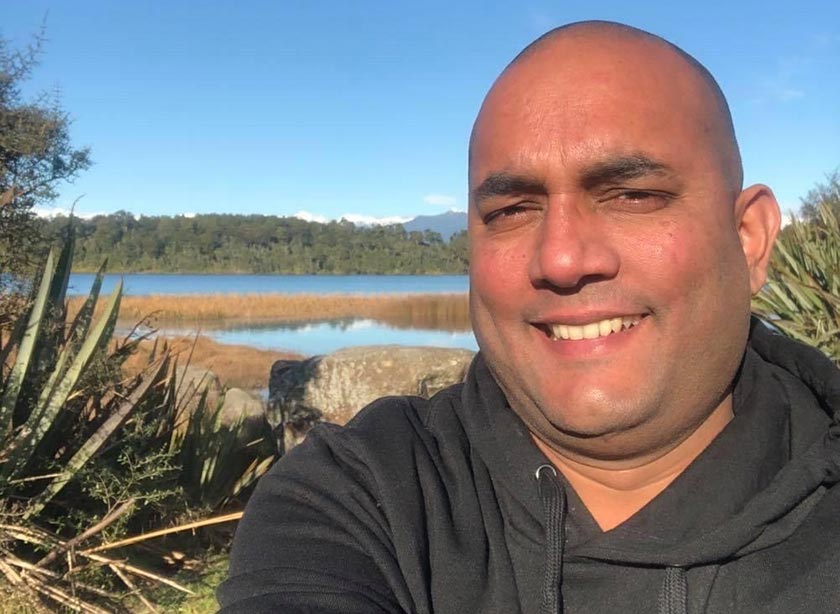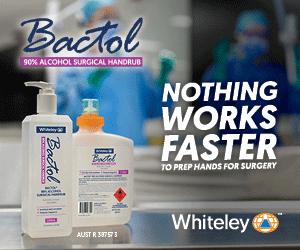At first glance, the tropical island nation of Mauritius, in the Indian Ocean, a smidge to the east of Madagascar, seems to be more inviting than Greymouth, on the West Coast, a smidge to the east of the cold Tasman Sea.
But for clinical nurse manager Randy Gopalla, 42, the West Coast has become a true – if slightly chillier – home away from home after his move from Mauritius, to live in Aotearoa.
Gopalla spoke to Kai Tiaki about his journey, in life and work, to the rugged and isolated West Coast.
Nursing runs in his family, so Gopalla always intended to become qualified – starting his training aged 18. “Since I was in high school, my goal was to do my nursing studies.”
He came to New Zealand in 2015 to complete his competence assessment programme (CAP), completed further tertiary education in Mauritius, and returned with his family to stay in 2017.
“We were mainly looking for a country where you had a good work-life balance. And then the level of practice here matches what we do at home as well, so it was easy for me to practise here.”
Most Mauritians wanted to leave home to work in places like England, Canada or Australia, he said. “But for us we chose New Zealand mainly for my daughter, a nine-year old… it would be the best place for her to grow.”
In Mauritius, the weather is warm. They have two seasons there, but “what we call winter there, is probably the summer here”, he said. Mauritius is a busy, densely-populated island nation with a strong tourism industry.
The sparsely populated West Coast might seem like an odd choice for his new workplace, but he said he wanted to get away from big cities.
“We thought of moving to New Zealand and relocating to a small town… and when we came to Greymouth we really fell in love with that little town. And then last year we bought our own house.”
Settling in to life at Te Nīkau, Grey Hospital and Health Centre, was not necessarily a big change either from his practice at home. There they tended to practice what he described as a rural model of care. Nurses might be expected to practice across multiple areas – “like medical, surgical, paediatric, ED”.
“This is something that I did back home – and it was easy for me to go back to this rural way of practice.”
Last year they shifted to new hospital premises and merged medical and surgical wards into a single, general ward.
Training staff as generalists
One of the challenges he was given when he came to the West Coast was to train staff to become more “generalist” practitioners.
“I had to train the medical into surgical and the surgical into medical, and merge the two together – and so when we moved last year it went really smoothly.”
This jack-of-all-trades approach includes Gopalla himself. He is clinical nurse manager (ICU, medical-surgical ward), but after hours he is an on-call hospital-wide duty manager; at other times he fills in on shifts as duty nurse manager.
Gaining his registration in New Zealand was not problematic, he said. “I’ve done most of my studies with the Royal College of Nursing in England, and then the training in Mauritius is equivalent to the training in England [as a Commonwealth country] so we tend to have the same practice and education.”
In 2015, he completed his CAP course work in Hawke’s Bay and gained his registration. Now he is continuing to deepen his understanding of life in Aotearoa – training in te reo and tikanga Māori. It is something that makes him feel more like he is back home in multi-lingual Mauritius.
There were similarities between the Mauritian creole culture and the Māori culture, he said. “So it’s quite easy for us to adapt.”
After decades training and working around the world, Gopalla has found a home away from the traffic jams and long supermarket queues of big cities elsewhere.
“To be honest with you,” he says, “I have never felt homesick from the moment we came. We’ve always been surrounded here with friends, and colleagues… so we’ve never felt we’re on our own.”





